Hello Lemonistas,
Welcome to the latest edition of The Lemon Grove newsletter. But before we get stuck into this edition, if you haven’t already downloaded the Substack App, I encourage you to do so.
The app is how you’ll access the full value and experience of your subscription to The Lemon Grove.
Located in London's quietly discrete diplomatic district of Belgravia, the Italian Cultural Institute uses a range of 'soft power techniques’, such as cultural events, culinary diplomacy and art exhibitions, to inspire people to visit Italy as tourists or to seek business opportunities. Their recent Italian Island Week, for instance, started one evening of talking about Sicily and then a couple of days later moved onto Sardinia. For Italy, culinary diplomacy is a finely honed instrument in the battle to encourage gastronomy tourists to visit. I visited the ICI on Sardinia night to hear chef and cookbook author Letitia Clark share her love of the island with Bee Wilson, food culture writer and Vicky Bennison of the hugely successful YouTube channel 'Pasta Grannies'.
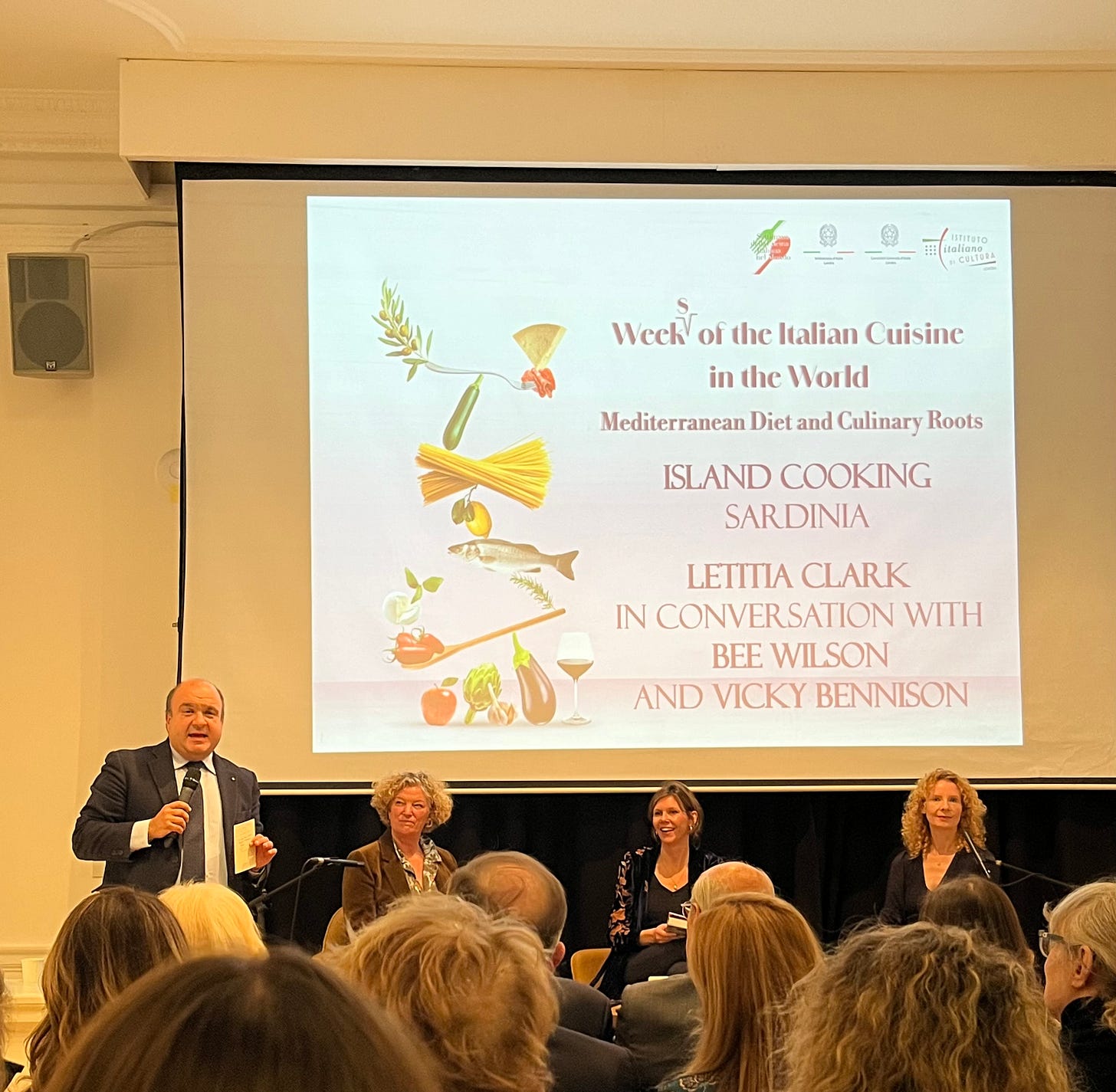
Listening to passionate, personal and experienced chefs and food writers talk about food and life on the Italian island of Sardinia was eye-opening. I visited many years ago with family, staying in a resort on the island's southern coast, where we were focused on ice cream and beach life. Should I visit today, I would pack two of Letitiia's cook/ guidebooks in my luggage - 'Bitter Honey' and Wild Figs and Fennel'. What better way to get a sense of place than through its recipes and food stories?
Island life
Reading 'Wild Figs and Fennel', I'm struck by how the ingredient lists are tucked away, almost as an afterthought. Instead, the pages are full of prose, of history, geography stories of people and gathering while cooking instructions are imbued with warm instruction rather than the sparse, brutalist list of things to do so often found in modern cookbooks.
British ex-pat Letitia, who now calls the Italian island of Sardinia home, is married to a local. With a young son just starting school, she is looking ahead to many years of cooking lunch for her family - every day! Sardinian kids eat from scratch, says Letitia. Perhaps that sounds daunting, but I have a feeling that she will find many more traditional, local and seasonal recipes and maybe serve them with a modern twist.
Images in the book show an idyllic landscape of sunlit, dappled hills dotted with the ubiquitous goats, the source of the island's world-leading Pecorino cheese production.
So what makes Sardinia and the Sardo people live differently from the Italian mainland or Sicily, its southern neighbour? Perhaps it's an adherence to tradition, close family ties, and sharing their infectious joy about where they live. Sardinia is a 'Blue Zone location', a term used to describe areas of the world where people are believed live longer, healthier and happier lives. It offers a rounded lifestyle, including closely connected family groups, active outdoor living, generally good, warm weather, and good access to fresh produce – often homegrown. Access to locally grown produce also helps. When living in northern Italy a few years ago, I remember an elderly, weather-worn lady perched on a crate with a tatty plastic bowl holding little more than a couple of handfuls of knobbly, mud-covered potatoes, ready for sale. These vegetables, grown in a tiny patch of garden, this ritual connected her with the land, her market-visiting friends and a modest income.

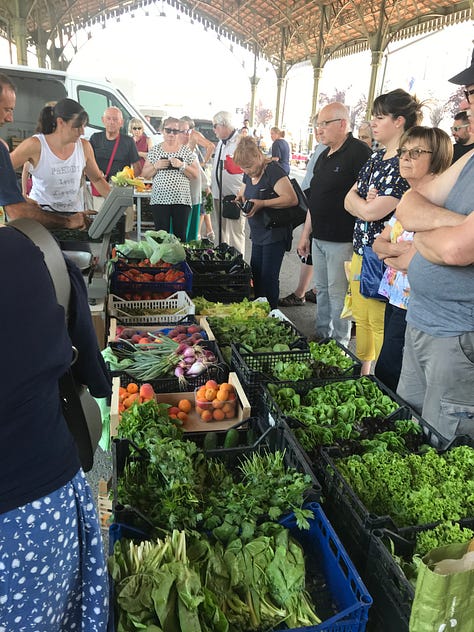


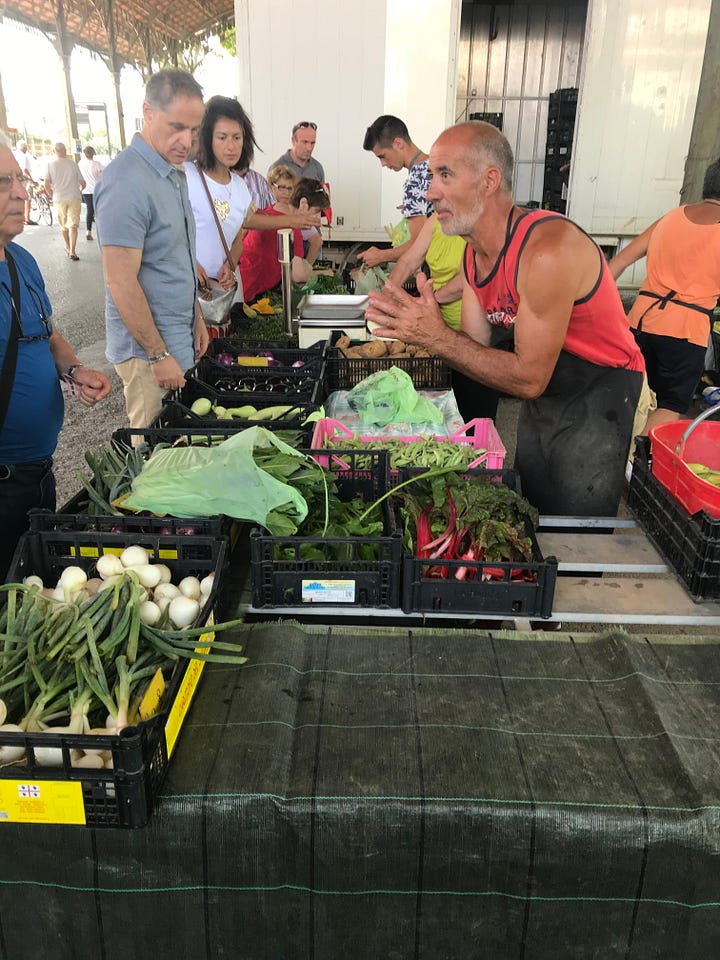
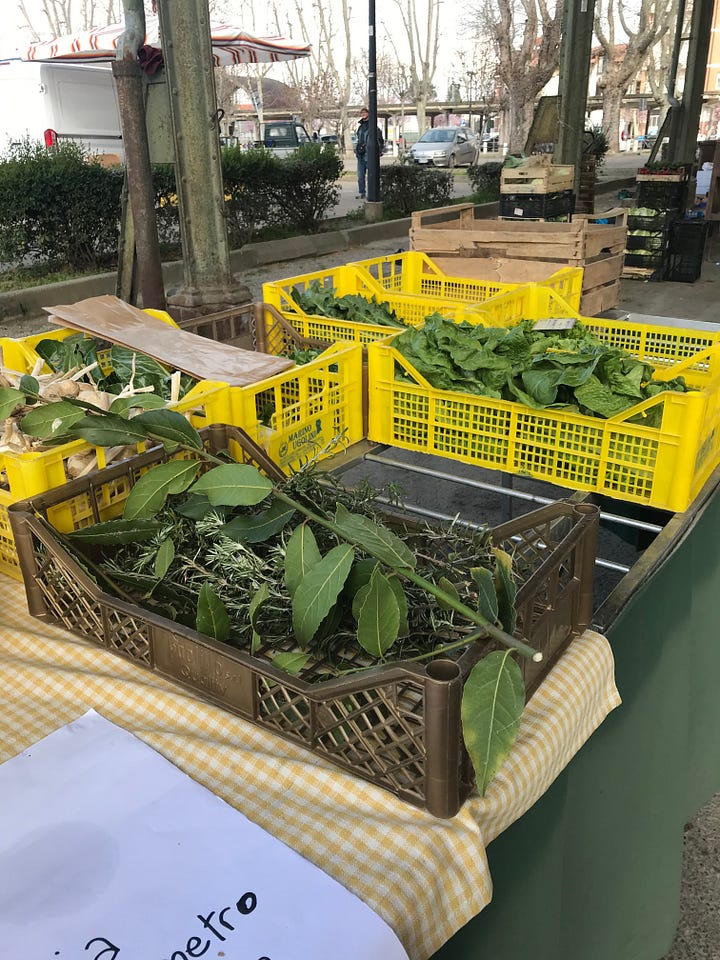

Letitia's latest book 'Wild Figs and Fennel' takes us through a year of changing seasons using ingredients grown in the fertile soils of the land.
She made the point that you'll likely enjoy cooking if you enjoy shopping for your food, during the ICI Sardinia evening. Step inside a supermarket, and you'll be faced with over-chilled air and shelves of plastic-wrapped foods, demanding that you check Sell-By dates, Use-By dates, or Best-Before dates. Suspiciously cheap chickens and too many ultra-processed foods with tricksy, unpronounceable names do not inspire joy in the kitchen, something Letitia rediscovered when she landed on the island after a busy career cooking in London kitchens such as Moro, Spring and The Dock Kitchen.
Finally, look for out Letitia's upcoming book 'For the Love of Lemons: Italian-Inspired Recipes That Celebrate the Lemon '. Published on 8 May, 2025, this will be her fourth book and includes Italian-inspired recipes such as Lemony Burrata with Spring Vegetables and Pistachio Pesto, Creamy Lemon and Mascarpone Carbonara, and Lemon Tiramisu. The book features delicious recipes and explores the cultural significance of lemons in Italian cuisine. Available to pre-order at your local bookshop.
Watch this YouTube video of Salvatora, a Pasta Grannie living in in the town of Nuoro, Sardinia and one of the last makers of the rare Su Filindeu pasta. It looks like angel hair pasta and is very tricky to make. Serve in a thick, cheesy thick soup.
Buy Letitia’s books here … Bitter Honey, Wild Figs and Fennel, and La Vita è Dolce: Italian–Inspired Desserts.
Buy two of Bee Wilson’s many books here … First Bite, and The Secret of Cooking.
Pompìa, a special citrus from Sardinia
Across northeast Sardinia, between white sandy beaches and rising limestone mountains, lies the Baronia coastal region and the ancient town of Siniscola, now the focus of the island's tiny pompìa crop. Weighing up to 700 gms each, some say this knobbly, wrinkly fruit with a pleasant mix of sour and bitter flavour is the ugliest cousin within the sprawling citrus family. They are sometimes considered the 'monstrous citron', somewhat unfairly, though. Too dry, acidic, and bitter to eat straight off the tree, pompìa rewards the patient cook.

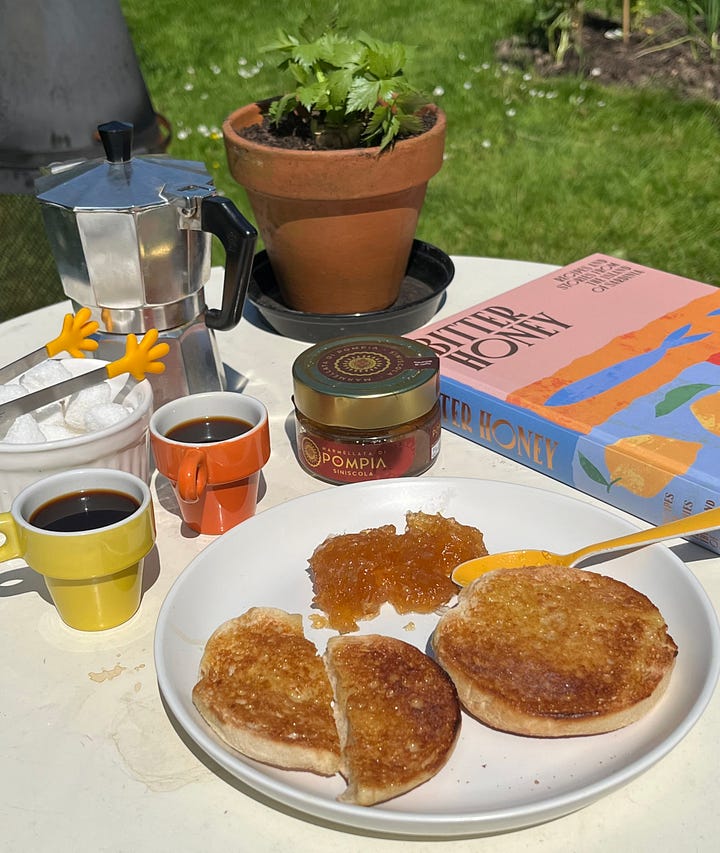


But it is beloved by growers and cooks for its flavours that seep into sweets and marmalades, playing a central role in the cultural life of the Sards, the people of Sardinia. Further south around Muravera, you'll find sweet oranges and lemons, but it’s only around Siniscola that you will find the rare pompìa. Slow Food International is now supporting the fruit, helping growers and farmers save it from the brink of extinction.
Easily spotted across the scrubby sun-bleached wilderness and beyond the fences of carefully tendered gardens and orchards, pompìa grows slowly, absorbing what moisture and nutrition it can from the stony ground.
Hidden within its sunglow colour and thick, wrinkly skin full of essential oils, the insides are used to flavour liqueurs and traditional sweets such as Sa Pompìa intrea and s’Aranzata.
The taste of pompìa is unique and complex. The rind is slightly bitter and tangy, while the flesh is mildly acidic and less sweet than other citrus fruits. The overall taste is a blend of bitterness and tartness with a hint of sweetness. Scratch the skin, and you'll be hit with a spritz of citrusy aroma with an appealing note of lemon.
The outer skin is reserved for essential oils and herbal remedies, while the thick white pith layer just underneath is used to make sweets and marmalades or as s’Aranzata made by crystallising pompìa zest with honey and toasted almonds.
Tradition demands that sweets be given out on festival days such as weddings and baptisms. (This article first appeared in The Cabinet of Curiosities earlier this year).
LISTEN While over on iGlobe News, you’ll find my article asking whether western diets are killing us.
The Lemon Grove's Substack newsletter
Give the gift of a 'The Lemon Grove' Substack newsletter to a friend, family member or yourself! Organise your gift through this link below … Thank you.
If you enjoyed this post, please click on the little ❤️ below ⬇️.
Share The Lemon Grove with your family and friends
A newsletter for the food, travel and culturally curious. With a special interest in citrus, you’ll get tasty recipes, travel inspiration and thoughts about the food and drink we enjoy every day. Plus, there are lots of recommendations for great cookbooks, films, shows, and radio programmes to enjoy, as well as places, restaurants, bars, and shows to visit.
If you haven’t already downloaded the Substack App, I encourage you to do so.
The app is how you’ll access the full value and experience of your subscription to The Lemon Grove.
Thanks for reading and please do leave a comment, by pressing the button below!
Bruce McMichael
Writer, Podcaster, Event Host & Cook, Lemonista
Email: hello@thelemongrove.net
Facebook: LemonGroveSocial
Instagram: LemonGrovePics




